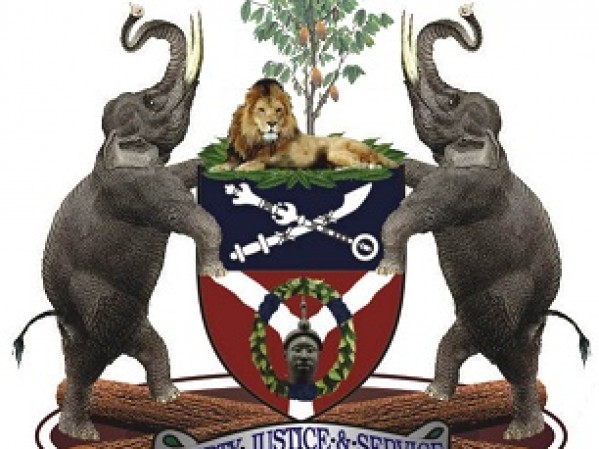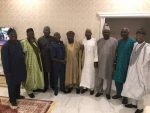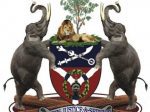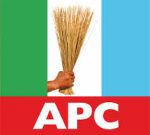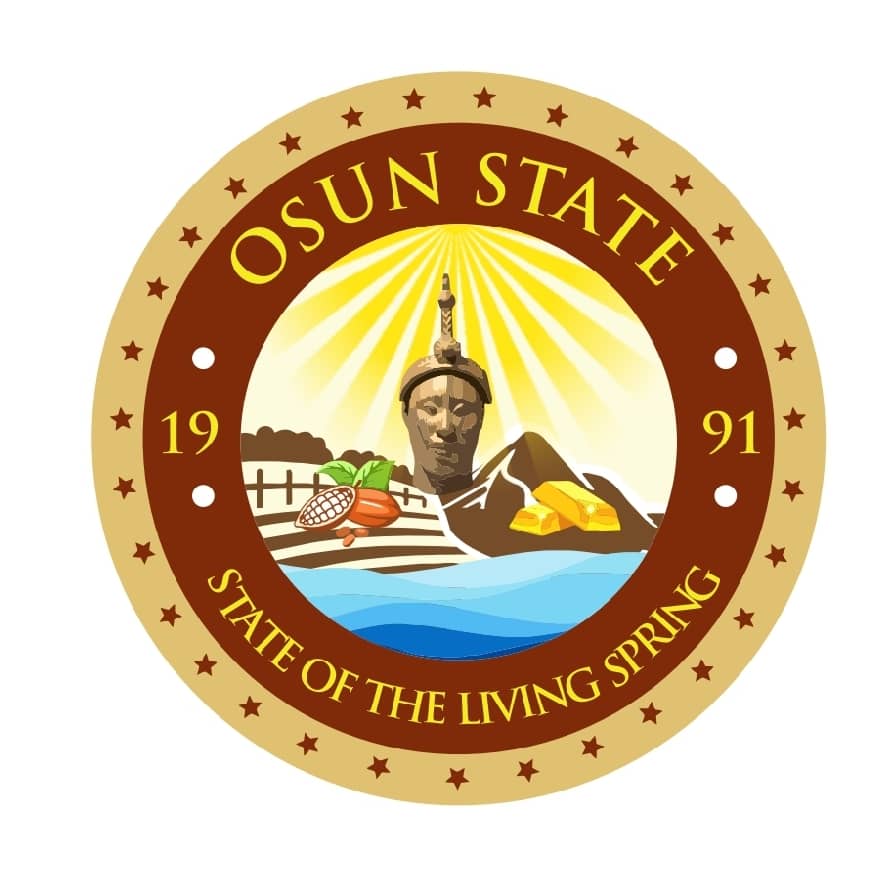From the Adeleke’s certificate scandal, the gale of defections, the secret vote-buying, to the rerun controversy and eventual emergence of the winner, Solomon Odeniyi writes on the intrigues that greeted the just concluded gubernatorial election in the State of Osun.
Osun gubernatorial election has come and gone. The Osun people have spoken, but just like other elections held in the country, it has brought questions begging for answers to the lips of people within and outside the state. It is however not surprising, as analysts claimed that the Osun poll would act as a compass for the 2019 general elections which explains the keen interest on the Osun election.
At the end of the day, the ruling All Progressives Congress (APC) polled 255,505 (35.36) votes as against the opposition People’s Democratic Party’s 255,023 votes (Representing 35.32% of total valid vote cast). The SDP’s Iyiola Omisore, ADP’s Moshood Adeoti and ADC’s Fatai Akinbade coming a distant third, fourth and fifth with, 128,053 (17.78%), 49,743 (6.9%), and 7,681 votes (1.07%) respectively.
Recall that after the first ballot, Adeleke could not be returned, as the 353 votes’ difference between him and Oyetola is not enough to declare anyone the winner.
Section 153 of the Electoral Act stipulates a rerun if the margin of victory in an election is lower than the number of voters in units where elections are cancelled.
In all, 3,498 votes were cancelled, giving the green light for the commission not to declare any party the winner on the September 22 gubernatorial election until after a rerun was held.
The returning Officer, the Vice Chancellor of the Federal University of Technology Akure, Professor Adeola Afuwape stated that from Osogbo, Unit 017, where 884 voters were registered, was cancelled because the presiding officer absconded with electoral materials. In Orolu, the election was cancelled in three polling units due to ballot box snatching and other irregularities. It is the same for Ife North where result of one polling unit was cancelled and Ife South where results of one polling units each were cancelled.
Afuwape said: “Unfortunately as the returning officer, it’s not possible to declare anybody as the clear winner of the election on the first ballot.”
This was because the 3,498 cancelled ballots were higher than the difference between the votes of the leading candidates; hence a re-run election had to be conducted.
“To that effect, as the returning officer, it is not possible to declare any party as clear winner of this election on the first ballot. But I must commend the people of this state for being peaceful.
“The INEC, therefore, declared September 27 as date for a rerun election. On the basis of this, I, declare the election inconclusive. I, Joseph Adeola Fuwape, hereby, declare this election inconclusive”, he said.
Another reason cited by the electoral commission was that the total cancellation, without a second ballot would amount to denying the electorates in the affected areas their right to exercise their civic duties.
However, the rerun has since been heard and the winner has emerged.
Pre Election Drama
Before the cast of the ballot, no one knew where the pendulum of the election would swing. But there were issues that played out which many thought had a ripple effect on the outcome of the election vis-avis the voting patterns. Some ended a hoax, others happened as predicted.
The Gale Of Defections
Of the major parties that contested the election, quite a low number of them didn’t feel the billowing heat of defections. In fact, three of the five major contenders for the topmost seat in the land of the virtue had aggrieved persons who fell out from their parent parties to actualise their governorship dreams in another. For instance, Adeoti who was once the chairman of the Alliance for Democracy as well as the Action Congress contested the primary of the APC before opting out, alleging the party of imposition. He resigned his position as Secretary to the State Government to join the relatively unknown ADP on the eve of the INEC’s deadline for submission of candidates’ name. He did leave with some of his loyalists, which included the former Commissioner for Information, Sunday Akere and some former local government chairmen. That of the Ikire born politician, Elder Peter Babalola alongside his followers wouldn’t go unnoticed. His reason was the West and no other senatorial district must produce the governor. Long before this, were the defection of Alhaji Fatai Diekola, and the former governor of the state, Prince Olagunsoye Oyinlola.
For the People Democratic Party, Senator Iyiola Omisore having seen that the odds were against him to run in the party, left for the docile SDP in the state with his loyalists where he thought he would have it soft, although, he ended up the party’s flag bear not without a long battle. Also, Alhaji Fatai Akinbade resigned his membership of the PDP to team up with his former boss Okuku Prince at the African Democratic Congress where he contested the gubernatorial election. The APC was the beneficiary of the last. The Ede born politician, Adejare Bello defected from the PDP to the ruling APC.
Analysts are of the view that the defection witnessed in the two parties affected a great deal the garnered votes for the major political parties that contested the election, as such, there would have been no need for a rerun if they had not gone to the election with divided houses. The rerun made Iyiola Omisore the beautiful bride whom the two parties went after to get the mandate handed to them. The rest is now history
Adeleke’s Show Down
Before the cast of the first ballot, Adeleke was swimming from one pool of controversy to another which could have put a paid to his governorship aspiration. His certificate saga filtered the state’s political space. He had his day in the temple of justice based on this before he was let off the hook after the WAEC board confirmed he sat for the exam where the only result he had was an F9 in English language. It cast a doubt, on his capacity to govern the state. The incumbent governor was quoted to have said that Adeleke wouldn’t have been considered for the state’s youth empowerment programme. Also, save for the president intervention, he could have been detained for accusation of forgery. His abscondment from the various election debates also get him soaked in controversies.
Oyetola and the Ajele Rhetorics
Oyetola had his fair share of the pre election jibes. On many occasions, he was called an Ajele. Ajele is a Yoruba language with which a foreigner is identified. He defended this so well, stating to those who cared to know that he was born and bred in Iragbiji but his defence did not sink with some people who have made up their minds to use it as a campaign point. Some analysts were of the view that this also played a crucial role as some in his party never gave their all working for him. They are however of the view that as an Ajele, he would bring a foreigner to steer the affairs of the state once he gets the mandate. Also, he was accused of being the brain behind the government on the payment of half salaries to workers in the state; a major point the opposition rooted their campaigns on. His believed imposition did not also help matters, hence the major reason why the gale of defection materialised. But now, the rest is history.
Vote Buying
The Independent National Electoral Commission (INEC) had vowed to curb the menace of vote buying in the state election, threatening to prosecute those involved. One of such steps by the commission was banning the usage of mobile phones around the cubicle.
Despite the stern warnings by the independent commission, politicians from different parties engaged in vote-buying in Osun state.
Party agents devised another method of vote buying. Some had been paid on Friday, a day to the election. On the D-day, some party agents did it openly, others concealed theirs. They wrote down names of those who voted for their candidates in order to be given money after the election. Unlike in practice in Ondo, Anambra, Edo, Kogi and Ekiti where the usage of smart phones at cubicle served as evidence before payment were made to electorates who voted for any of the candidates. One of the major parties, PDP in some units allegedly damned the consequences, paid between 3,000 and 15,000, while some others, it was learnt by our reporters paid between a meager of 200 and 2,000.
Some agents took to making the electorate swear to an oath to be double sure they voted for or would be voting for their party before handling to them the money. Arrest were made, two agents of the Peoples Democratic Party (PDP) were wrapped up in this shameful act.
The failed forecast
During the heat of the campaign, political commentators predicted how the September 22 election would be a departure from the election narrative in the country where elections are centered on two major parties. They described the Osun poll as a five man horse race between Alhaji Gboyega Oyetola, Ademola Adeleke, Fatai Akinbade, Iyiola Omisore and Alhaji Moshood Adeoti. Though, it was keenly contested by the listed candidates but the margin between Oyetola, Adeleke and other contenders showed to many it was still same old story. Adeleke had been written off by many but at the end he was able to pull his weight.
The Rerun controversy
Residents have placed themselves on the side of the divide as regards the declaration by INEC. So also have legal luminaries and political pundits.
While some were heaping the allegation of conspiracy on the electoral umpire, others were of the view that such act was not new to our system. They cited the cases between: Obianio of APGA and Tony Nwoye of the PDP during the Anambra guber poll. Obiano in the said election had 174,710 as against Nwoye’s 94,956 and the cancelled votes was 113, 113. The Imo 2015 gubernatorial election between Okorocha (APC) had 385, 671 and Ihedioha of the PDP 306, 142 the margin was 79, 529 and cancelled votes was 144,715. The 2011 Anambra Senatorial election between Dora Akunyili (APGA) 66,273 and Chris Ngige (ACN) 65,576. The margin was 697. The recent is the Kogi election where Abubakar Audu (APC) polled 240,867 and Wada Idris (PDP) 199,514 with 41,353 as margin and 49,953 votes as cancelled votes. Most of the mentioned elections were conducted under Athairu Jega and the PDP then hailed and celebrated this as bold move. The same party has made a u-turn and kicked against a rerun in the affected units in line with Sections 1(2), 69 and 179 (2 ) of the 1999 constitution, while INEC came to its defence with Section 68(c), 69 and 153 of the electoral act 2010 as amended.
Regardless of the outcome of the election, particularly before it was declared inconclusive, the poll has been adjudged by many as peaceful, as INEC was commended for the peaceful conduct of the poll.
House of Assembly member representing Egbedore State Constituency, Honourable Abiodun Awolola; Chairman, Egbedore South Local Council Development Area, Mr Kola Ajao, the Chief of Staff to the Governor, Honourable Rasaq Salinsile and Commissioner for Special Duties, Honourable Oguntola Toogun lauded the people of the state for being peaceful and orderly during the election.
According to them in separate interactions shortly after casting their votes, the INEC gave all parties level playing ground to participate in the poll, saying the conduct of the election has shown what the 2019 election would look like.
However, the rerun has been conducted, the election has been concluded and a winner has emerged. The onus is now on the aggrieved political gladiators to allow peace to prevail in the state. This is what is needed for development to take place.

